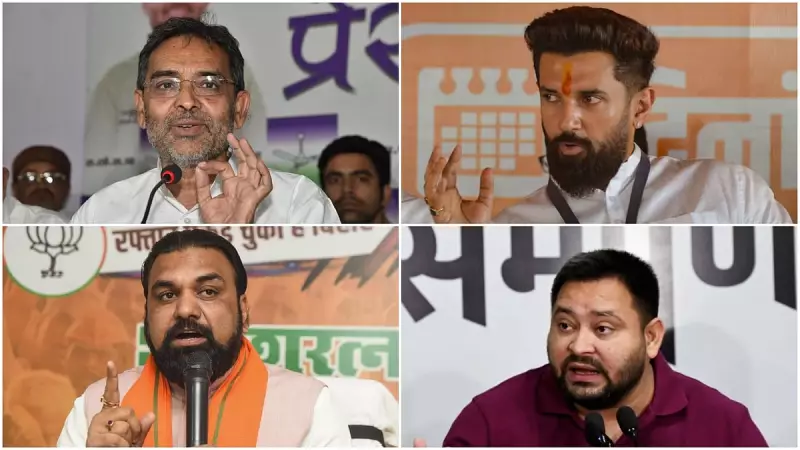
As the political battleground heats up for the 2025 Bihar Assembly elections, a familiar pattern has emerged that's raising eyebrows across the political spectrum. Major parties appear to be putting family before merit in their candidate selection process, with political dynasties taking precedence over dedicated grassroots workers.
The Family Ticket Bonanza
Several prominent political families are seeing multiple members secure tickets, creating what critics are calling a "family first" policy in political recruitment. From sitting MLAs to former ministers, political heavyweights are ensuring their kin get preferential treatment when it comes to ticket distribution.
The trend cuts across party lines, with JD(U), RJD, and BJP all participating in what appears to be a systematic preference for political heirs over party workers who have spent years building the organization from the ground up.
Grassroots Workers Feel Sidelined
This pattern of nepotism hasn't gone unnoticed by party cadres. Many long-time workers who have dedicated their lives to party building express frustration at being overlooked in favor of political newcomers whose primary qualification appears to be their family name.
"The sweat and blood of ordinary workers seems to matter less than blood relations when tickets are distributed," remarked one disgruntled party member who requested anonymity.
Historical Precedent or Worrying Trend?
While political dynasties are nothing new in Indian politics, the scale and brazenness of family-based ticket distribution in the upcoming Bihar elections has reached new heights. Political analysts note that this trend could have significant implications for both party morale and democratic representation.
The concentration of political power within family networks raises questions about meritocracy and equal opportunity within political parties. It also potentially limits the diversity of representation that reaches the legislative assembly.
Voter Reaction and Electoral Implications
As election campaigns intensify, all eyes will be on how Bihar's electorate responds to this dominance of political families. While some voters may prefer familiar political names, others might see this as an opportunity to demand more representative candidates.
The 2025 Bihar elections could become a referendum not just on governance and development issues, but on the very nature of political recruitment and representation in one of India's most politically significant states.






